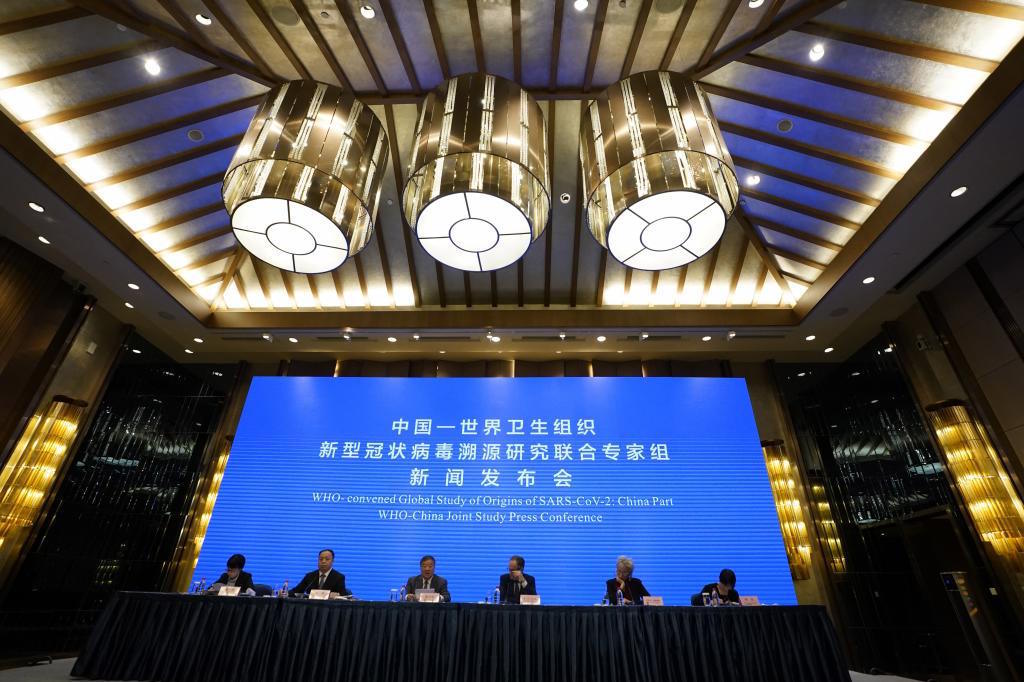Until just over five years ago, the most significant role China had within the World Health Organization (WHO) was its veto power to prevent Taiwan from participating in the agency's meetings at its headquarters in Geneva. The pandemic, with its origin - still to be clarified - in the Chinese city of Wuhan, pushed for the first time to have a more direct and open communication between the WHO and Beijing, which was already seeking to expand its presence in the leadership of various United Nations organizations. Now, China is set to become the largest state donor to the UN health agency.
The Asian giant continues to pursue the ambitious plan to fill the global leadership void left by Donald Trump and his "America First" foreign policy. Presenting itself as the responsible superpower defending the maintenance of the international order, Beijing is winning the race for influence in one of the most important arenas, the WHO, after committing to inject an additional $500 million over the next five years, filling the gap left by the US withdrawal.
While Trump withdraws his country from the most important chains of international cooperation, those that in the past greatly helped Washington extend its soft power, it is now China that resorts to checkbook diplomacy to try to fill those humanitarian and global health gaps.
"The world is now facing the consequences of unilateralism, posing significant challenges to global health security," said Chinese Vice Premier Liu Guozhong on Tuesday during a meeting of the World Health Assembly. It was a clear reference to the US after Trump ordered his country's withdrawal from the WHO earlier this year, an organization described this same week as "moribund" by US Health Secretary Robert F. Kennedy Jr.
"Beijing has been making its way towards global health leadership without the need to write large checks to Geneva. China has committed $50 billion for the development of Africa between 2025 and 2027, which includes the establishment of medical centers and the deployment of 2,000 medical professionals, and this contrasts with a Trump administration that is retracting from its international commitments," says Yanzhong Huang, a senior global health researcher at the Council on Foreign Relations, a US-based think tank. "Now, China could strengthen its influence in the WHO without needing to match US contributions, leveraging the support it has from many developing countries within its Belt and Road Initiative program."
Reopening old Covid wounds
These days, from Washington, some analysts have expressed concern that a huge influence of the Asian country in the WHO may lead to forgetting the criticisms and accusations about the origin of the Covid pandemic and the Chinese government's handling during the early stages when the virus emerged in Wuhan.
Earlier this year, the theory of a leak from the high-security laboratory in Wuhan resurfaced after a CIA report pointed to this without presenting any evidence. The WHO itself concluded in its latest report that a laboratory leak was "extremely unlikely" and that the virus most likely emerged through natural transmission.
In late January 2020, when China had already closed Wuhan due to the first known Covid outbreak and the virus was spreading worldwide, the WHO publicly praised Beijing for its rapid response to the new coronavirus, thanking its transparency and immediate sharing of the genetic map of the SARS-CoV-2.
A few months later, an investigation by the AP agency revealed that the Chinese government was not actually willing to share key information during the critical early days of the pandemic. AP had access to several recordings of WHO technicians' meetings in Geneva where they privately complained that China was not sharing the necessary data to assess the virus's risk to the rest of the world, starting with the delay in disseminating the genome for over a week after three Chinese laboratories had already deciphered it.
"We are receiving very minimal information," protested epidemiologist Maria Van Kerkhove, who was appointed the WHO's technical lead for Covid-19, according to the recorded conversations. The WHO feared that if they took a more critical stance or pressured Chinese scientists, the Xi Jinping government would become more reluctant to share its data.
In the early months of the pandemic, from Washington, President Trump did not cease his criticism of the WHO, calling it a "puppet in service to China's interests." With Joe Biden in the White House, the Democrat signed an executive order to halt the initial US withdrawal from the international organization. Meanwhile, the WHO and China claimed to be working closely to uncover the origin of a pandemic whose source is still unknown today.
Amid criticism of the WHO for its sudden closeness to China, the organization's Director-General Tedros Adhanom Ghebreyesus took a tougher stance by demanding transparency from Beijing, which used its media channels to accuse Ghebreyesus of becoming a "spokesperson for the US who had abandoned scientific neutrality."
At the end of 2024, marking five years since the start of the pandemic in Wuhan, the WHO gave another warning to China, admonishing that it was a "moral and scientific imperative" to share all its data on the origins of Covid. A few days after that note, the agency released a photo showing representatives of the organization and Chinese officials in Geneva signing a $5 million funding agreement for a traditional medicine program.
